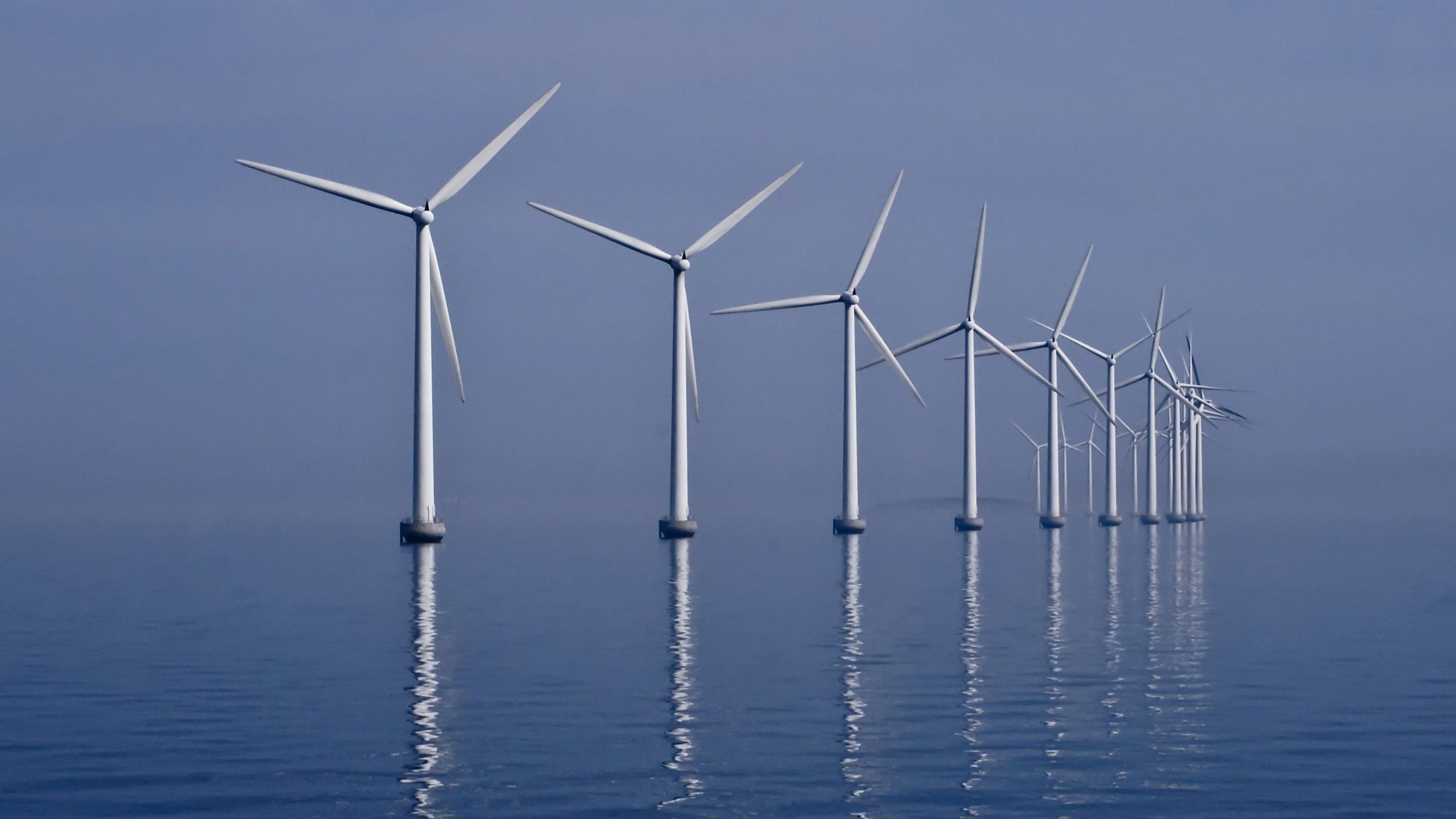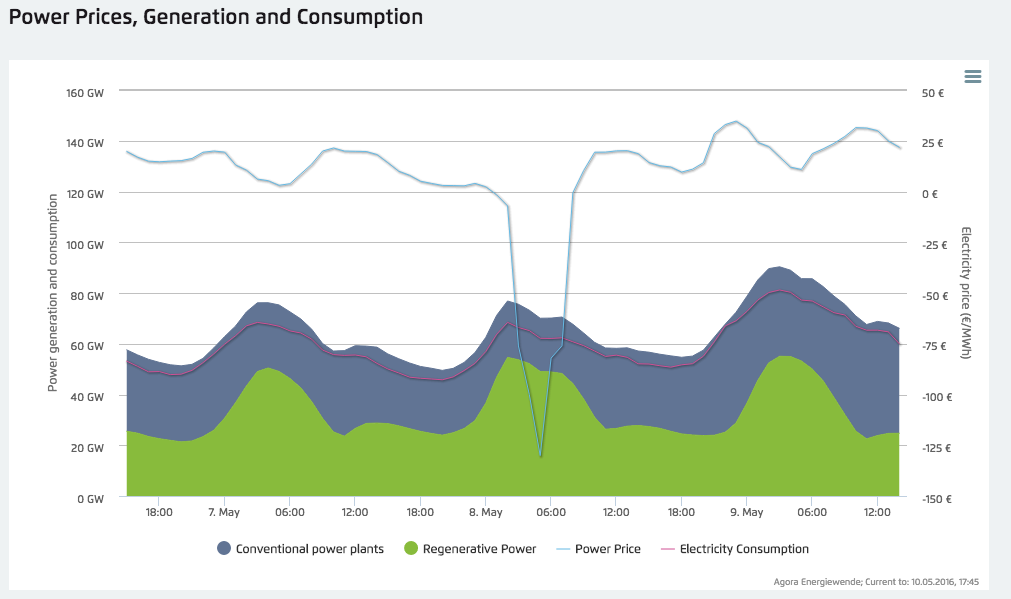Energy consumers in Germany received money for electricity this Sunday
Energy from renewable sources was received so much that prices fell below zero

On May 8, on Sunday, Germany broke a new record in the generation of energy from renewable sources. Due to the solar and at the same time windy weather, the total energy production by solar, wind, hydro and bioenergy stations was about 55 GW. In total, 63 GW of energy was consumed in the country that day. Thus, the share of renewable sources was about 87%. For a few hours the prices went negative, which means payments to energy consumers.
')
Recently, this situation is no longer something unique. Across Europe, similar bursts of energy production are becoming more frequent. If from 2010 to 2014 the prices went down only a few times, then last year it happened dozens of times. The problem is that prices in the energy market in Europe are formed by auction type. Producers ask for their price, and buyers, which is logical, offer their own options. And if there is too much energy, wholesale energy suppliers start dumping, and prices sometimes go into a minus, as it happened now.
At the same time, producers of "green" energy are in the black, even at negative prices - here one should take into account subsidies for the production of clean energy. The problem is that, often, there is simply nowhere to put the excess energy - the “export” lines may turn out to be too “narrow”, and you need to send energy somewhere. Therefore, energy producers are happy to get rid of surplus, even with a surcharge.

Image: AGORA ENERGIEWENDE
Interestingly, last year the share of renewable energy in Germany was about 33% . This year, with the introduction of new wind power plants, the share of “alternatives” in the energy market has increased. By 2050, Germany plans to bring the share of energy from renewable sources to 100%. And in Denmark, wind power stations in some cases supply more energy than the entire country consumes. Therefore, the surplus is exported to the same Germany, Norway and Sweden. Costa Rica also receives 99% of its energy from renewable sources.
What happened on Sunday is not only a reason for joy. There are negative points. For example, the modern energy infrastructure of many countries is too inert to adequately respond to jumps and falls in energy generation. And if the gas power plants can be “extinguished” quickly, then you cannot do this with nuclear power plants and coal power plants.
This problem is more serious than it seems, since you cannot change the country's energy system quickly. It is possible that accumulating “substations” will begin to develop in the future, which will be able to smooth out such moments, but so far this sphere is not very developed.

On May 8, on Sunday, Germany broke a new record in the generation of energy from renewable sources. Due to the solar and at the same time windy weather, the total energy production by solar, wind, hydro and bioenergy stations was about 55 GW. In total, 63 GW of energy was consumed in the country that day. Thus, the share of renewable sources was about 87%. For a few hours the prices went negative, which means payments to energy consumers.
')
Recently, this situation is no longer something unique. Across Europe, similar bursts of energy production are becoming more frequent. If from 2010 to 2014 the prices went down only a few times, then last year it happened dozens of times. The problem is that prices in the energy market in Europe are formed by auction type. Producers ask for their price, and buyers, which is logical, offer their own options. And if there is too much energy, wholesale energy suppliers start dumping, and prices sometimes go into a minus, as it happened now.
At the same time, producers of "green" energy are in the black, even at negative prices - here one should take into account subsidies for the production of clean energy. The problem is that, often, there is simply nowhere to put the excess energy - the “export” lines may turn out to be too “narrow”, and you need to send energy somewhere. Therefore, energy producers are happy to get rid of surplus, even with a surcharge.

Image: AGORA ENERGIEWENDE
Interestingly, last year the share of renewable energy in Germany was about 33% . This year, with the introduction of new wind power plants, the share of “alternatives” in the energy market has increased. By 2050, Germany plans to bring the share of energy from renewable sources to 100%. And in Denmark, wind power stations in some cases supply more energy than the entire country consumes. Therefore, the surplus is exported to the same Germany, Norway and Sweden. Costa Rica also receives 99% of its energy from renewable sources.
What happened on Sunday is not only a reason for joy. There are negative points. For example, the modern energy infrastructure of many countries is too inert to adequately respond to jumps and falls in energy generation. And if the gas power plants can be “extinguished” quickly, then you cannot do this with nuclear power plants and coal power plants.
This problem is more serious than it seems, since you cannot change the country's energy system quickly. It is possible that accumulating “substations” will begin to develop in the future, which will be able to smooth out such moments, but so far this sphere is not very developed.
Source: https://habr.com/ru/post/394075/
All Articles